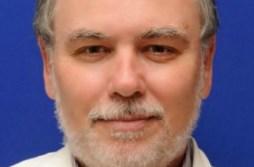The Israeli sharing his mass casualty expertise in Boston
Halpern has been training US medical personnel for many years. Several years ago, he was part of a Harvard University and US government-sponsored project that brought Jewish and Arab Israeli physicians and nurses to give two-day training sessions on emergency care and the management of sudden-onset localized events, such as terror attacks, at Boston’s Brigham and Women’s Hospital and Massachusetts General – which also received many of the marathon casualties.
“The medical aspects of managing patients are simpler than the logistics, and this is what we specialize in,” he says. “You may have personnel who are good at treating but do not have the knowledge to prepare for and take command of MCI situations.”
While Israeli hospitals have had ample opportunity to fine-tune these procedures through years of war and terror attacks, particularly the difficult second intifada years when the nation was hit by a string of bombings – in 2002 alone there were more than 50 suicide bombings — Halpern explains that major trauma generally accounts for a small portion of emergency medicine, perhaps 1.5 percent of the entire patient load. “We have a very streamlined way of deciding what is an MCI, and emptying the ED [emergency department] for those casualties through very efficient procedures,” says Halpern, whose most recent experience with an MCI was a bus bombing near the hospital that wounded about 30 people in November last year.
“We have procedures for calling personnel for small, medium and large events, involving 50 to 200 persons. We have good communication systems and methods for triage and assigning patients to beds. We have a complex list of the sequence of events that have to happen.”
‘They learned well’
Much has been written in the past week about Israeli connections to the medical treatment of Boston bombing victims. The president and emergency department director at Beth Israel Deaconess are both Israeli-born, Israeli-educated physicians. Dr. David Spector, on staff at Tufts Medical Center, where 18 victims were rushed from the horrific scene, was formerly a surgeon at Tel Aviv Sourasky Medical Center and served in the Air Force’s Airborne Rescue and Evacuation Unit.
Halpern and other Israeli doctors have been credited with helping Boston’s medical centers become better prepared for MCIs. Dr. Paul Biddinger of Mass General’s emergency department was quoted as saying that the hospital implemented Halpern’s suggestions regarding triage, site security, reassessment and coordination among medical specialists. Other hospitals also used the Israelis’ advice to sharpen their disaster response procedures.
“The [hospital administrators] asked for meetings, discussions, lectures and training because they felt they were not optimally prepared, and we have so much experience on the ground,” says Halpern, who also led training at hospitals in Seattle, Florida and New York in areas such as identifying, classifying and treating wounds typical in bomb attacks. “They were smart enough to learn and prepare beforehand, and they learned well,” says Halpern. “Fortunately, the [Boston Marathon] event occurred at midday, and close to the concentration of hospitals, which already were in a state of readiness for possible marathon injuries.”
Avoiding burnout
Born in Romania and raised in Israel, Halpern decided even before high school that he would channel his people skills into a medical career. He was accepted into the IDF’s Atuda program, which allows gifted students to complete their academic training prior to active duty. After medical school at Tel Aviv University, Halpern served in a Navy diving unit and its diving institute in Haifa, gaining expertise in hyperbaric and diving medicine from 1979 to 1984. Though eventually he switched to intensive care, anesthesiology and finally emergency medicine, he still chairs the medical board of Israel’s National Diving Authority.
During the 1980s and 1990s, Halpern did fellowships at the Ohio State University Medical Center and Whipps Cross Hospital in London. He has headed Sourasky’s emergency department since 1993.
Considering the intensity of his job, how does he keep from burning out? “That is difficult, and we discuss it at home frequently,” he responds. The day he spoke with ISRAEL21c was, in fact, the starting day of a new study to assess professional burnout among Israel’s emergency physicians. “Studies elsewhere have shown emergency physicians are at the top in the rate of burnout,” he says, but for him the secret is job satisfaction. “I love my work, and my family pays the price, which so far they have found acceptable.”
His wife is a speech pathologist who oversees services for hearing-impaired children through the Ministry of Education. They have two children, one earning a master’s degree in family therapy and the other a medical student. The family lives in Ra’anana.
Abigail Klein Leichman

